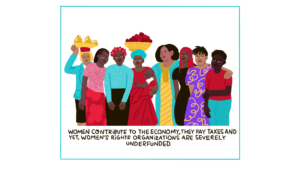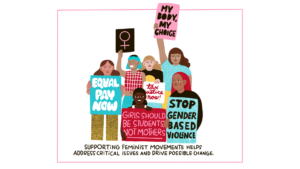Key information
Countries and regions: Angola, South Africa, Tanzania and Zimbabwe
Researchers: Memory Pamella Kadau
Advocacy summary
The paper highlights that decolonizing Feminist Foreign Policies (FFPs) will lead to economic justice. The researchers point out the importance of using a decolonial FFP framework to ensure gender equity and economic empowerment in the African Continental Free Trade Area (AFCTA) which is currently under implementation. Part of this includes centering the needs and expectation of women working in the informal economy. In Africa, the majority of women work in the informal economy. Minority World governments must ensure inclusive, non-exploitative trade agreements in collaboration with African feminists.

Recommendations
- Collaborate with feminist grassroots movements in Africa to inform inclusive trade and foreign policies.
- Promote fair and gender-responsive trade practices that protect local economies and support environmental justice.
- Invest in capacity-building programs for women in informal economies, addressing barriers like education, finance, and digital access.
- Ensure inclusive policymaking by engaging women’s organizations and monitoring gender impact in trade policies.
- Support advocacy and innovation through funding, public-private partnerships, and accessible platforms for grassroots participation.
Author

Memory Kadau is a Pan-Africanist and Project Management Specialist with a background and over 17 years in grant-making, human rights, governance and democracy, gender justice, leadership, Early Childhood Education (ECD) and Sexual and Reproductive Health Rights (SRHR), with a focus on sexual violence. Memory is pursuing an LLB with the University of London, United Kingdom, a Higher Diploma in Systemic Family Therapy (2022), Zimbabwe Institute for Systemic Therapy, Harare, Zimbabwe, a Postgraduate Diploma in Project Management (2017), Roehampton University, London and a Bachelor of Science Honors Degree in Journalism and Media Studies, National University of Science and Technology, Bulawayo, Zimbabwe (2008).




